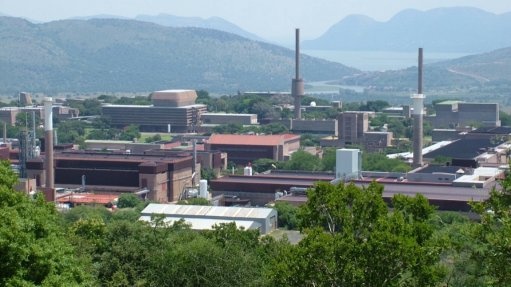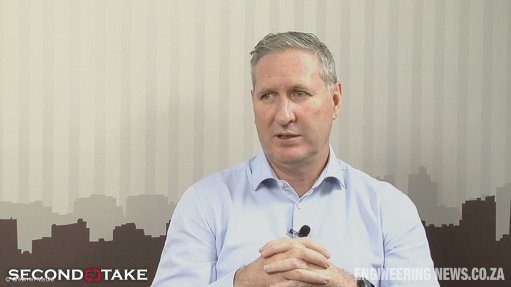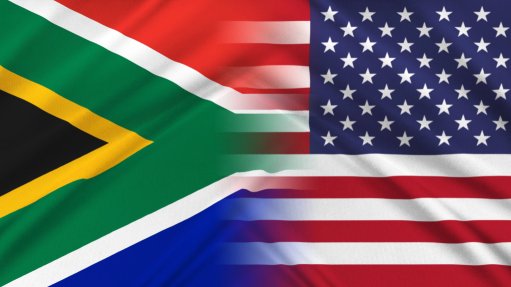There is relevance for nuclear power in South Africa, Niasa exec
South Africa needs to be prepared for the nuclear build programme, which has been in the pipeline for a decade now, says Nuclear Industry Association of South Africa supply chain committee member Des Muller.
Speaking at the Africa Energy Indaba, in Johannesburg, on Tuesday, Muller stated that there was definite relevance for nuclear energy in the country.
South Africa plans to build at least 9 600 MW of nuclear power capacity, but the nuclear build programme has been a contentious issue, with many arguing that the country simply can not afford the programme.
“South Africa has a well-established nuclear industry, with two operating assets. The nuclear build programme could potentially move very fast, because a lot of work has been done through various procurement programmes within government and the private sector,” Muller said.
He added that nuclear also made sense from a sustainability point of view.
“South Africa’s carbon dioxide output per kilowatt-hour is the highest in the world and is something that we need to address as a moral obligation,” he said.
He further stated that nuclear energy could also deliver some sustainability objectives, such as desalination, and the preservation of water, transmission losses, and being able to generate energy at the perimeters of the grid, which is a very important aspect of energy development in South Africa, which averages 16% transmission losses.
Muller suggested that the energy sector should play a more versatile role by providing safe, reliable and clean energy for the country, something that could be achieved through a combination of renewable, thermal, hydro and nuclear energy.
“A nuclear build programme in South Africa offers the opportunity for the local industry to address the socioeconomic development and industrial transformation [challenges facing] the country,” he said.
He noted that State-owned Eskom was retiring its 50-year coal fleet at an average rate of 1.25 GW/y, pointing out that the decommissioned energy will need to be replaced.
“To decommission something with a 75% capacity factor and replace it with a 20% capacity factor doesn’t make sense; one should be replacing like-for-like and nuclear energy should be considered for that,” he said.
Comments
Announcements
What's On
Subscribe to improve your user experience...
Option 1 (equivalent of R125 a month):
Receive a weekly copy of Creamer Media's Engineering News & Mining Weekly magazine
(print copy for those in South Africa and e-magazine for those outside of South Africa)
Receive daily email newsletters
Access to full search results
Access archive of magazine back copies
Access to Projects in Progress
Access to ONE Research Report of your choice in PDF format
Option 2 (equivalent of R375 a month):
All benefits from Option 1
PLUS
Access to Creamer Media's Research Channel Africa for ALL Research Reports, in PDF format, on various industrial and mining sectors
including Electricity; Water; Energy Transition; Hydrogen; Roads, Rail and Ports; Coal; Gold; Platinum; Battery Metals; etc.
Already a subscriber?
Forgotten your password?
Receive weekly copy of Creamer Media's Engineering News & Mining Weekly magazine (print copy for those in South Africa and e-magazine for those outside of South Africa)
➕
Recieve daily email newsletters
➕
Access to full search results
➕
Access archive of magazine back copies
➕
Access to Projects in Progress
➕
Access to ONE Research Report of your choice in PDF format
RESEARCH CHANNEL AFRICA
R4500 (equivalent of R375 a month)
SUBSCRIBEAll benefits from Option 1
➕
Access to Creamer Media's Research Channel Africa for ALL Research Reports on various industrial and mining sectors, in PDF format, including on:
Electricity
➕
Water
➕
Energy Transition
➕
Hydrogen
➕
Roads, Rail and Ports
➕
Coal
➕
Gold
➕
Platinum
➕
Battery Metals
➕
etc.
Receive all benefits from Option 1 or Option 2 delivered to numerous people at your company
➕
Multiple User names and Passwords for simultaneous log-ins
➕
Intranet integration access to all in your organisation

















